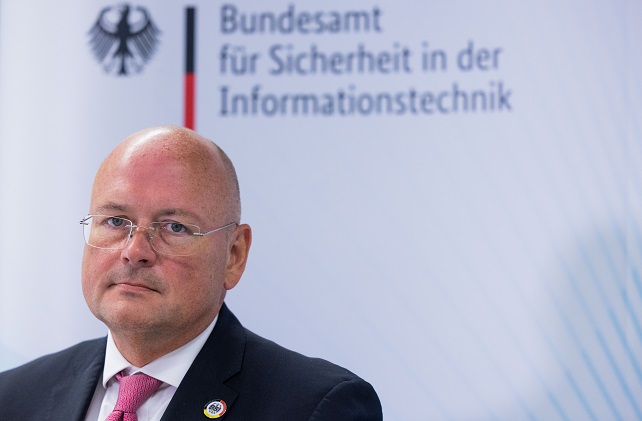German cybersecurity chief sacked amid concerns of links to Russia
Published : 18 Oct 2022, 22:50
Updated : 18 Oct 2022, 23:19
The chief of Germany's main cybersecurity authority, Arne Schönbohm, got the sack on Tuesday because of his ties to a group which has been linked to Russian intelligence circles.
Schönbohm, who leads the Federal Office for Information Security (BSI), has been under fire for his connection to an association called Cyber Security Council Germany, which itself has been criticized for being linked to Russian intelligence circles.
German Interior Minister Nancy Faeser made the call on Tuesday.
Schönbohm had been president of the BSI since February 2016. He was dismissed on Tuesday "with immediate effect," the Interior Ministry said.
The reported accusations against Schönbohm had "permanently damaged the necessary trust of the public in the neutrality and impartiality of the leadership of the president of the most important German cybersecurity authority," according to the ministry statement.
This trust was all the more important given how Russia was carrying out hybrid warfare during the war in Ukraine, the ministry said.
Having said that, the ministry said it would "thoroughly investigate all known accusations."
According to dpa sources, Faeser had been annoyed by Schönbohm's continued contact with the Cyber Security Council Germany, which he himself set up 10 years ago.
The focus of criticism has been on Berlin-based cybersecurity firm Protelion, which was a member of the Cyber Security Council until last week, when it had its membership revoked.
Until the end of March, Protelion went by the name of Infotecs and was a subsidiary to its Russian namesake, which is reported to have been set up by a former member of the Russian intelligence services.
Cyber Security Council head Hans-Wilhelm Dünn has characterized allegations that the association as a whole is under the influence of Russian interests as "absurd."


